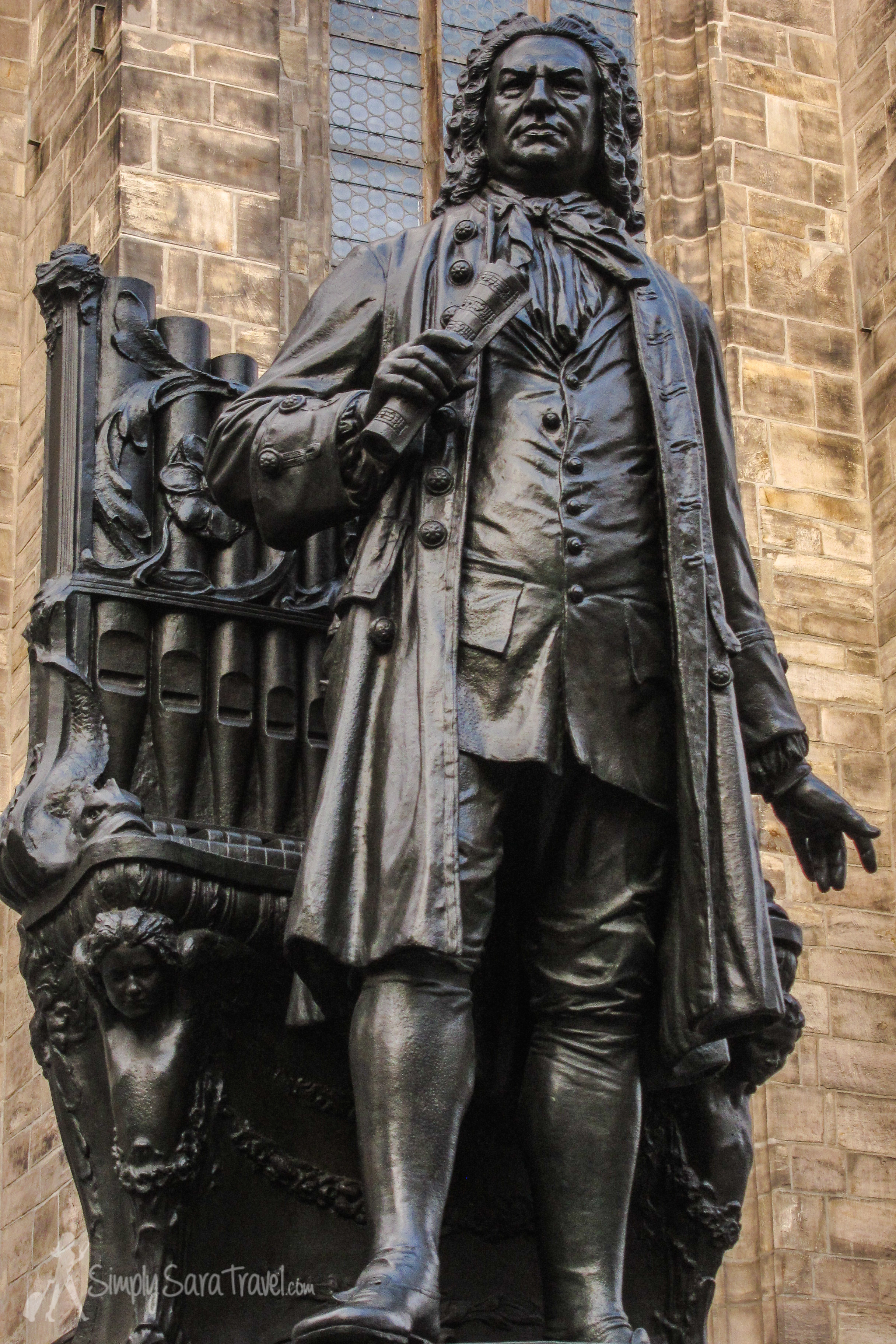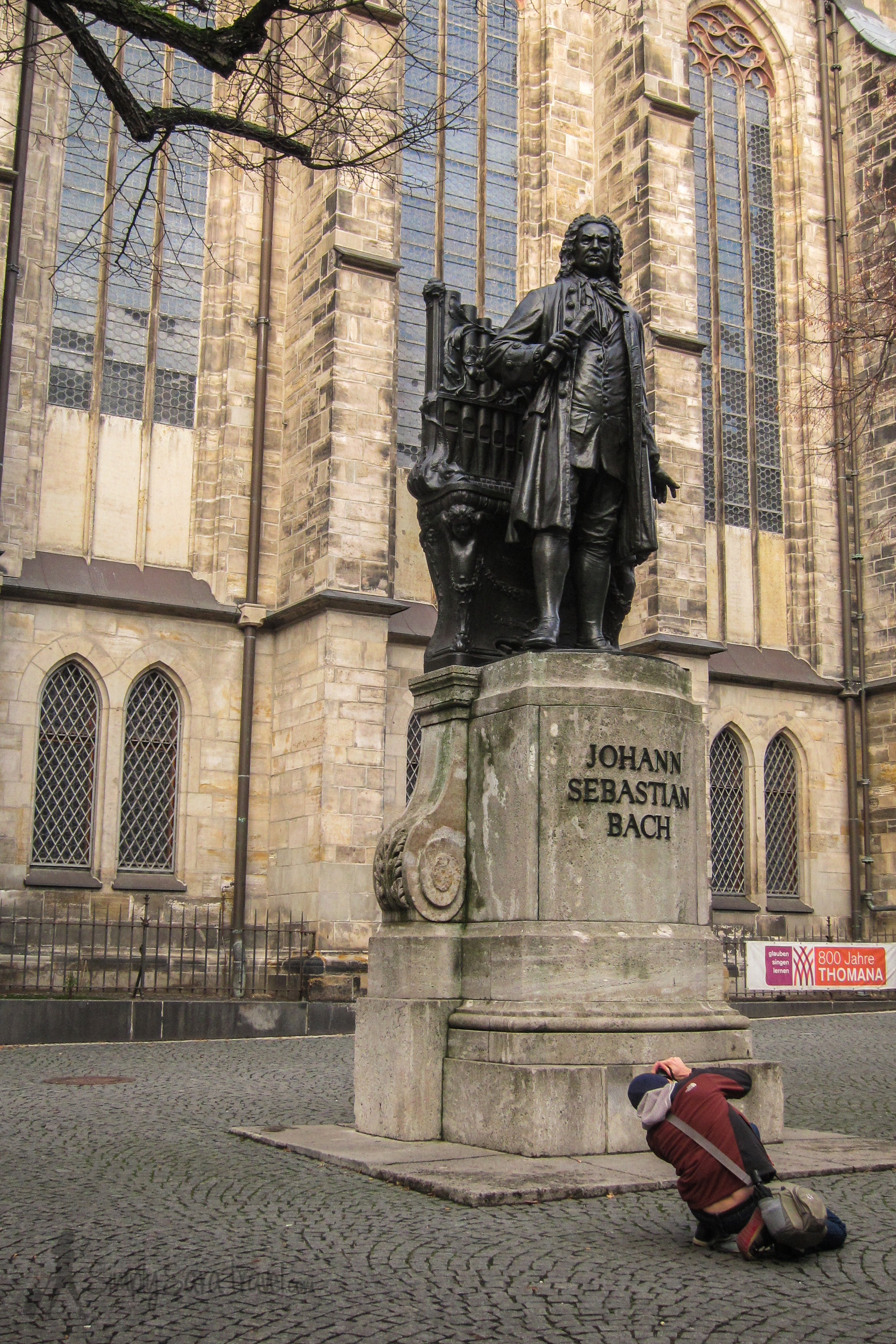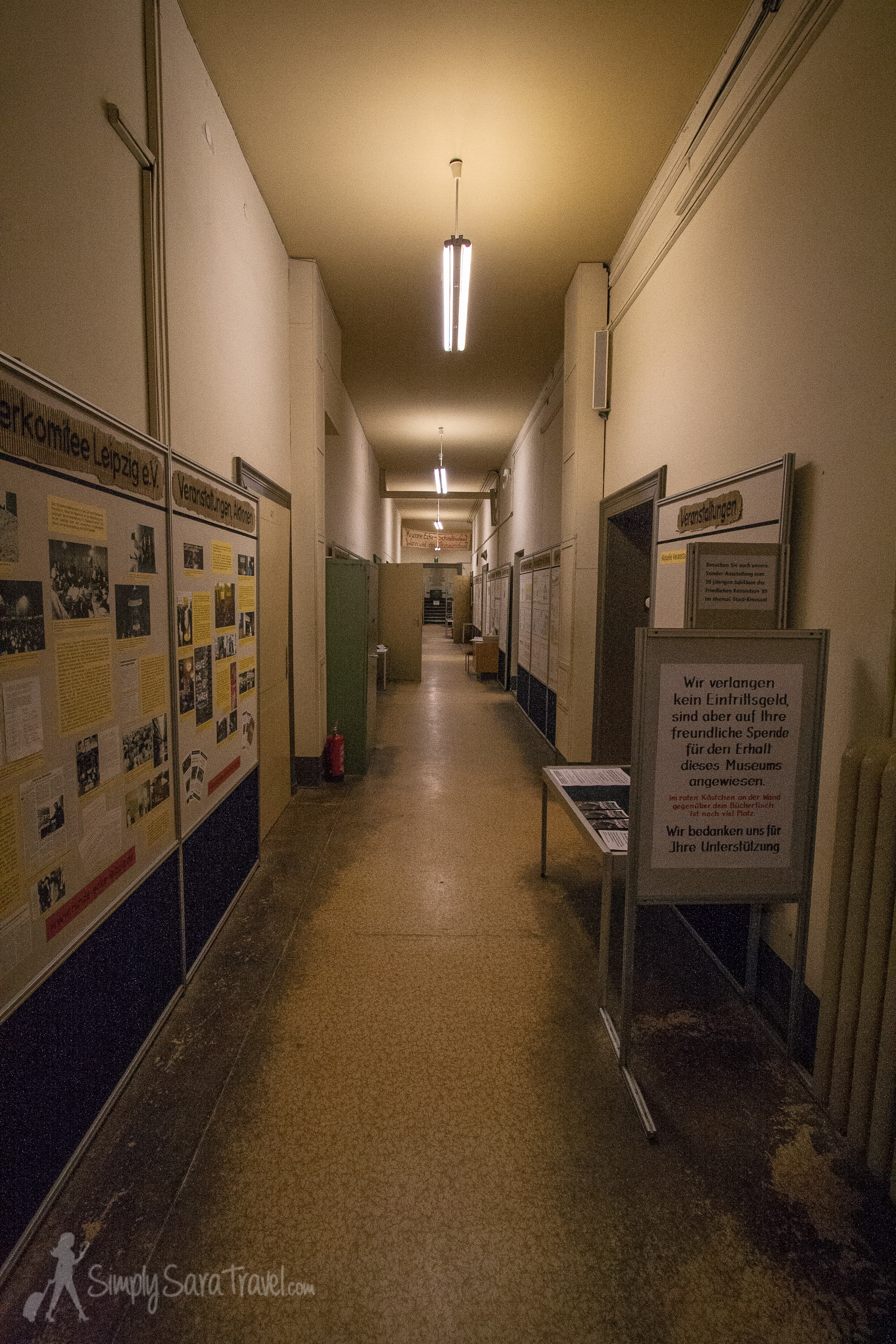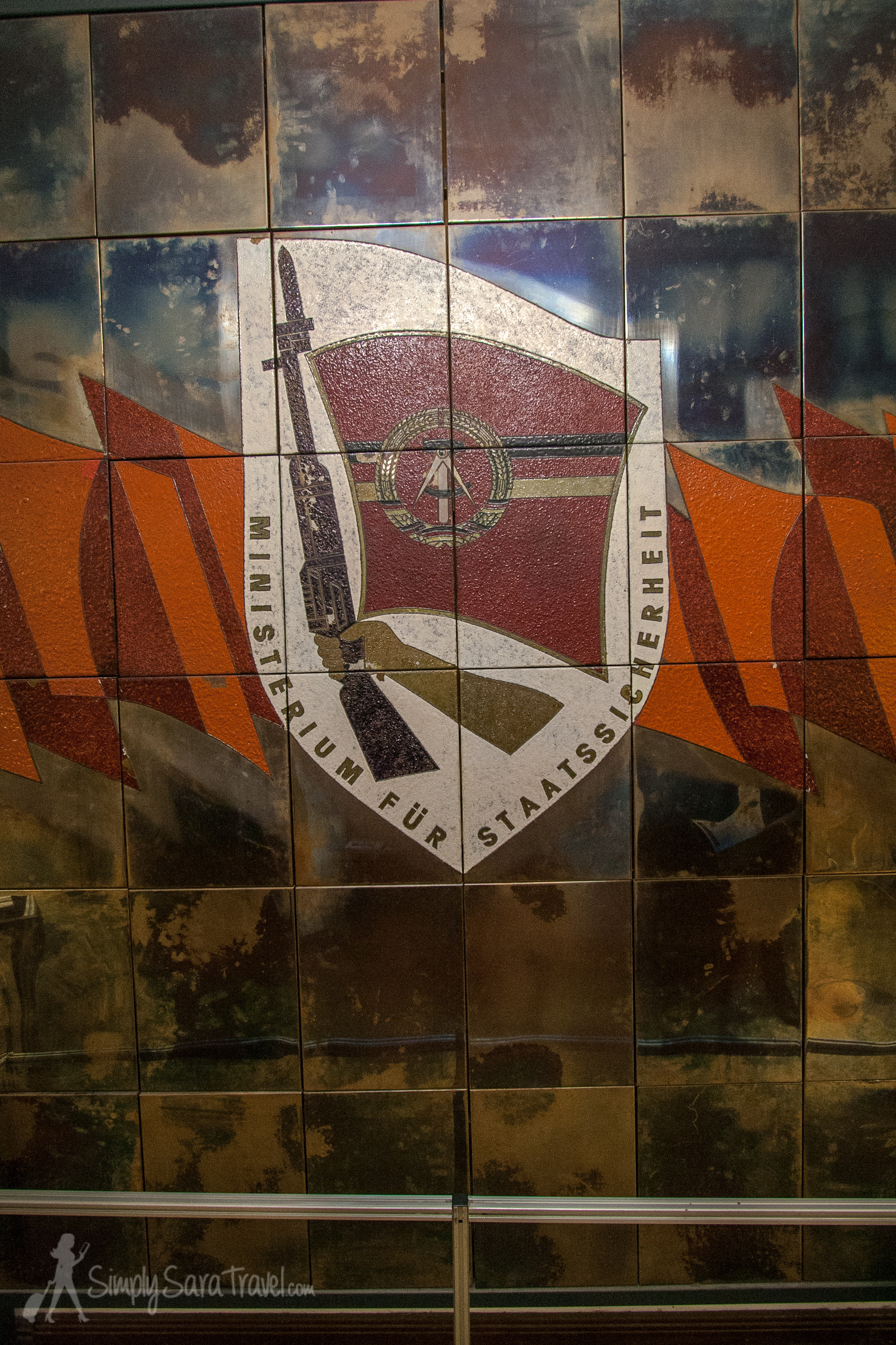Today's post is a guest post from a special someone - my husband! It's his first guest post, and appropriately on a subject he has always been passionate about, his favorite composer of all time. It's the reason we made Leipzig, Germany a stop on our first European Christmas market tour in 2012. Although it felt like a concession at the time on my end, it was a surprisingly delightful town that earned our superlative of "the most local" Christmas market we have visited, and all of this to do:
While we were planning our trip through Germany to see the Christmas markets, there was one thing on my Christmas wish list that had nothing to do with hot spiced wine or baked German treats: the town of Leipzig.
In America, Leipzig earns a mere footnote in our contemporary world history textbooks: they are mostly known for two things:
- Their failure to prosecute WWI war crimes (this is one of the primary reasons the Nuremberg Trials took place: the Allies didn't trust Germany to prosecute the war crimes on their own this time)
- The Monday demonstrations which led to the fall of the Berlin wall
Going further back in history though, Leipzig was a notable cultural center of the world. Martin Luther preached here, and some of the greatest minds in music have lived, worked, and/or visited here -- including Mozart and Schumann -- but most importantly...
Johann Sebastian Bach
If you like baroque music, or are interested in hearing me go on about the genius of Bach in well over 1,000 words, then read on! However, if you're looking for the condensed version of what to see for a (very worthwhile) stop-over or day trip to Leipzig, then skip down to "Leipzig Sights" below. Don't worry, I'll understand.
Bach and Leipzig
Those who know me know that I just can't get enough of Bach's music, and have been fascinated with his life and work from the time I was young (a large part of this was influenced by my piano teacher, who was also a huge fan of Bach). I made Bach the subject of one of my year-long research papers in high school, and my mom can attest to the fact that I was so passionate about practicing Bach's music that she would cherish the few moments of the day that I would give it a rest and go play some video games (I understand, mom -- I suppose one can only listen to Invention Number 8 so many times...).
Why was Leipzig so important in Bach's life? He lived and worked here for the last 27 years of his life as the choirmaster of the church. His official duties were extremely varied: teach Latin, mentor and feed the 50+ boys in the Church choir (plus his own 10 children), and prepare the worship for Church services for nearly every church in the town each Sunday.
Despite being so busy with all of these duties he was extremely prolific. On average, he wrote a cantata every week! Here, he also arranged many of his timeless masterpieces for the keyboard, which were in many cases actually written to be finger exercises for his students to practice their keyboard technique.
As he aged, his music became more abstract as he perfected a technique known as counterpoint -- instead of having a melody and a harmony, there are multiple melodies played at the same time (kind of like Twinkle Twinkle Little Star sung in rounds, but way more complicated). He shows his mastery of this type of music in a famous portrait, where he is holding a "puzzle canon." It's a single line of music meant to be played simultaneously by up to six different instruments, with each one playing it a different way (e.g: one person would play it as written, another would flip the page upside-down and play it, another would play it backwards and double the length of each note).
It's especially surprising that Bach was such a prolific composer when you consider that he wasn't even known for his compositions while he was alive! His compositions were re-discovered by Mendelsson, who is ultimately responsible for Bach's fame today. During his life, Bach was well known as an organ builder and inspector (churches throughout Germany would pay for him to visit and inspect thier new organs) and as a virtuoso keyboard performer (he played the organ and harpsichord -- both keyboard instruments). Even though many of his keyboard works are performed on the piano today, pianos didn't exist until the end of his life (He did get a chance to at least see one though: he was invited to inspect the first prototypes, which he approved of). If you're curious about early pianos, make sure to see the Musical Instruments Museum in the same town.
Sights in Leipzig
Saint Thomas Church: When we got to Leipzig, our first stop was this famous church where Bach led the Choir. The skies had finally cleared up for the first time in our trip, and I didn't want to miss the opportunity to take some pictures.
Pictured above: Ducking down to get the perfect angle for my shot, a German man walking past couldn't help but laugh at me (and my wife joined in on the fun, taking pictures of me). I don't care, the end result was totally worth it!
Behind the church, we found that the monument to Bach (paid for by Mendelsson years after his death) was covered up, probably for restoration. Undeterred, we continued around the church to see the most famous and iconic statue of Bach. It shows him holding a rolled up scroll (which is what he preferred to use to conduct, instead of a baton), and a pocket turned inside-out (since he was always in need of money to pay for the necessities of life for his huge family and the kids he was in charge of).
Pictured above: Bach in a box?
The inside of the church was beautiful too! Among the beautiful stained glass windows, there is one dedicated to Martin Luther, who once preached here, and another dedicated to Bach. Near the altar is a plaque under which the supposed remains of Bach lie -- though I'm not totally convinced. (He was originally buried in an unmarked grave. Over 100 years later, they decided it would be a good idea to dig him up and move him somewhere else -- so they dug up a few graves, looked at the remains, and made a guess as to which one was the master composer).
Here lies...someone?
Bach Museum: Just across the street from the church, you can find this well curated museum detailing the life and family of Bach. It has some incredible interactive exhibits, and is particularly kid-friendly. Among the exhibits, we saw:
- Bach's family tree, which played music written by his ancestors (Bach came from a very long line of musicians).
- An organ which Bach actually performed on (I was amused to learn that this is known as one of the few existing "Bach Relics").
- An interactive room where you could listen some of Bach's music performed on instruments of the time (instruments back then were actually very different, so it's difficult to actually listen to Bach's music as he originally intended it, since the instruments he wrote for are no longer accessible). In this exhibit, you could press a button to isolate the sound of each instrument, making the "counterpoint" in his music easier to hear.
- Some letters written by Bach -- including a hilarious one where he wrote to a local judge apologizing for his deadbeat son's behavior. His son got himself into debt and fled town, leaving no hint of his whereabouts -- and leaving Papa Bach to pick up the tab. In another instance, we found a job application for his son, written and signed by Bach. It's amazing to get a glimpse into the mundane day-to-day tasks occupying such a genius!
"The best museum ever" according to Michael
Museum of Musical Instruments: Thematically related to the Bach museum, "band geeks" like us should not miss the Museum of Musical Instruments. Some of the items on display included:
- the first piano (and an accompanying harpsichord and clavicord made by the same person)
- a "twin echo flute" -- two wooden flutes joined together, played by one person. Bach was always experimenting with new instruments, and this one was no exception. He authored the only composition which contains a part for this instrument. If it weren't for that, the twin echo flute would have been entirely forgotten
- one of the first metal flutes. Until visiting this museum, I never realized that modern flutes -- made of metal with a complicated system of buttons and levers -- were a fairly new invention. Before the invention of the modern flute, flutes were made of wood and looked (and sounded) a lot more like recorders (you know, those things we played in 2nd grade music).
- Some of the first player pianos - including a contraption that could "convert" a regular piano into a player piano. It was literally a device that you pushed right up to the keyboard in place of the bench, and it would play the piano for you! They also had the predecessor to the player piano, which was essentially a self-playing organ in the shape of a grandfather clock.
For better or worse, all of our time in Leipzig wasn't completely consumed by Bach. A few of the other things we saw in our time there:
The Stasi Museum: Stasi basically means "The Secret Police." From the end of WWII until the fall of the Berlin wall in 1989, Leipzig was under communist control. The Stasi museum documented the extent of the power of the secret police. We heard stories about how the secret police would invade the privacy of individuals through many means: a network of secret informants (who may be your friend or relative, working for the Stasi undercover); daytime raids of your home to bug the place while you were at work; and systematic desctruction of a person's life, by engineering a series of "personal crises" to ruin their professional careers and personal relationships. There was one story of an eighth grader who wrote a paper critical of Communist policy -- he was subsequently banned from attending any university. In another case, a man was secretly executed and his wife didn't find out for 9 years (they told her that he was being held in prison).
Seeing this museum has really helped me to appreciate why Germans are so intensively protective about their privacy today!
Pictured above: Left- The interior of the Stasi museum -- preserved just as it was in 1989 when it functioned as the headquarters of the Communist secret police in Leipzig / Right- A piece of communist propaganda on display in the museum
The Opera House: When we were unable to purchase tickets to a performance of Bach's works by the St Thomas Choir, we settled for Hansel and Gretel, performed in its original language: German. We didn't understand a word that was spoken, but enjoyed it all the same, since we already know this children's tale.
In front of the Leipzig Opera (Oper Leipzig)
We also have a lot to say about the Christmas market in this wonderful city... but I'll leave that for Sara to fill you in on another day :)
And that about sums it up for Leipzig. It was a great city -- far exceeding my (already high) expectations. It's a town to which I definitely intend to come Bach!
PLAN YOUR TRIP:
St. Thomas Church (Thomaskirche)
Thomaskirchhof 18, 04109 Leipzig, Germany
Open daily from 9:00am-6:00pm (except during church services and musical performances)
Admission is free
Consult the events calendar to see if you can catch a performance by the St. Thomas Boys Choir
Bach-Museum Leipzig
Thomaskirchhof 15/16, 04109 Leipzig, Germany
Open Tuesday-Sunday from 10:00am-6:00pm
Closed on December 24th, 25th, and 31st
Admission: Adults €8.00 / Reduced rate €6.00 / Up until the age of 16 years old is free (prices as of December 2014)
Free admission on the first Tuesday of each month
***There is a Bach festival in June every year - for more details, see the BachFest website***
Museum of Musical Instruments of Leipzig University (housed in the Grassi Museum)
Johannisplatz 5 - 11, 04103 Leipzig, Germany
Open Tuesday-Sunday from 10:00am-6:00pm (see website for special closures)
Admission: Adults €6.00 / Reduced rate €3.00; Combined ticket (for the 3 museums inside the GRASSI) Adults €15.00 / Reduced rate €12.00 (prices as of December 2014)
Audio guide €1.00
Stasi Museum (Memorial Museum in the Round Corner)
Dittrichring 24, D- 04109 Leipzig, Germany
Open daily 10:00am-6:00pm
Closed December 23-26, December 31st, and January 1st
Admission is free
Get the audio guide - the text within the museum is in German, so unless you can read German the audio guide is crucial to appreciate all the museum has to offer (€4)
Opera House (Oper Leipzig)
Augustusplatz 12, D-04109 Leipzig, Germany
See program on the official website




